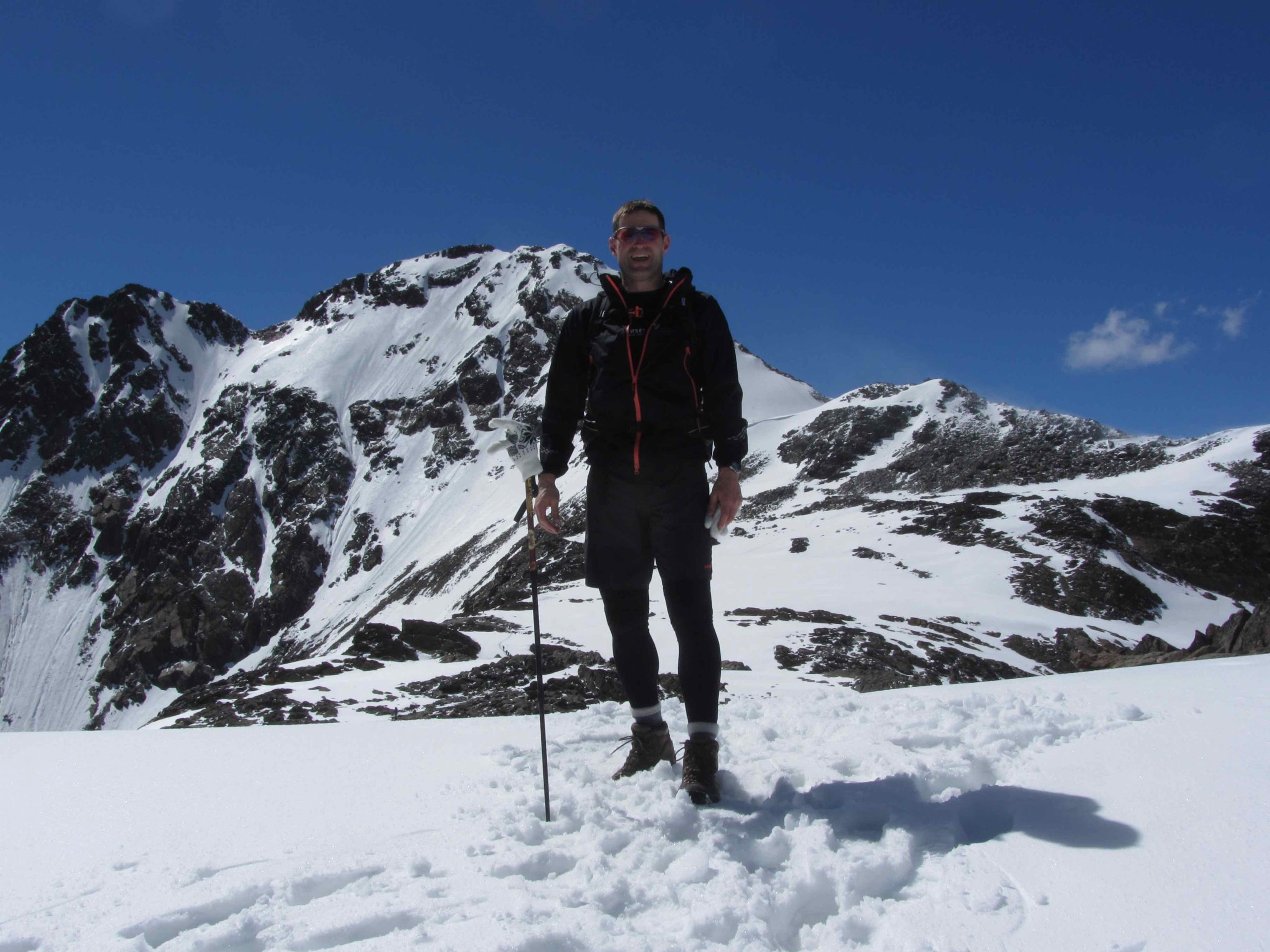
At this time of year, we often find clients heading off to enjoy skiing holidays and asking our Bristol fitness experts for advice on preparing their bodies.
Several of our team of personal trainers and therapists enjoy holidays on the ski slopes and activities in the mountains,
Including Active 8’s resident osteopath Alex pictured above on a recent Winter break he took with family to enjoy some mountaineering and skiing.
When it comes to getting fit for skiing, it involves more than just a few extra squats in the weeks leading up to the Winter holiday.
Equally, being ready to enjoy ski slopes doesn’t require extra hours in the gym throughout the Autumn either.
It is recommended that clients take 4-6 weeks prior to a skiing holiday to condition and prepare themselves for the specific activities involved.
When it comes to preventing skiing injuries, our fitness team in Bristol recommend the following:
Preparation
If you have a good baseline of fitness, a skiing holiday will help to reduce fatigue on the slopes.
Most skiing injuries occur after 3pm on the slopes when people are tired and not as focused.
A good baseline of fitness will help to reduce the risk of fatigue-related injuries, as well as give you a far more enjoyable week away in the snow.
Pre-existing injuries
If you have a niggling injury in place, try to get it dealt with before you head off on an annual skiing holiday.
It could be a thigh, knee or ankle injury, and can seriously impact your time on the slopes and mountaineering. It can also cause worse injuries to occur.
Be honest with yourself about your level of fitness, and the amount of recovery that is needed.
Speak to your personal trainer at Active 8 and if necessary consider booking in with one of our therapists to give you a thorough assessment.
Equipment
Hiring the right equipment on a skiing holiday is critical. Even better to have your own kit.
All skiing equipment should be set up correctly and in optimal condition, to help prevent injuries on the slopes.
Equipment should match your level of experience.
Behaviour
Skiing and associated activities are fun, but if you are fearful the risk of injury increases. Alcohol also significantly reduces performance and increases the chance of injuries.
Being aware of fatigue after a few days is important, as are other awareness elements, such as taking care of ski lifts to prevent falls, scrapes and strains.
Dehydration on the slopes is common, so it is important to stay hydrated, drink water, and wear the correct clothing to prevent hypothermic injuries.
When it comes to preparing the body for the rigours of a skiing holiday, include fitness activities that focus on endurance, strength and flexibility.
This will help you to ski for longer, harder and ultimately to be safer.
Exercises involving cardiovascular fitness are really good for preparing to get on the slopes, as well as cross-trainers to break up these intense sessions.
Cycling is a favourite way of increasing fitness levels used by competitive skiers and replicates the fitness needed for day-long skiing activities.
Ice skating and rollerblading help to develop the same muscle groups required to perform well on ski slopes, while running delivers a high-end aerobic workout. However, watch your knees when running any distance.
To find out more about our team of Westbury Park personal trainers and therapists, please visit here.
Ring our Active8 Westbury Park fitness centre on 0117 974 1852 for more information or email us at paul@brcjobs.com.
